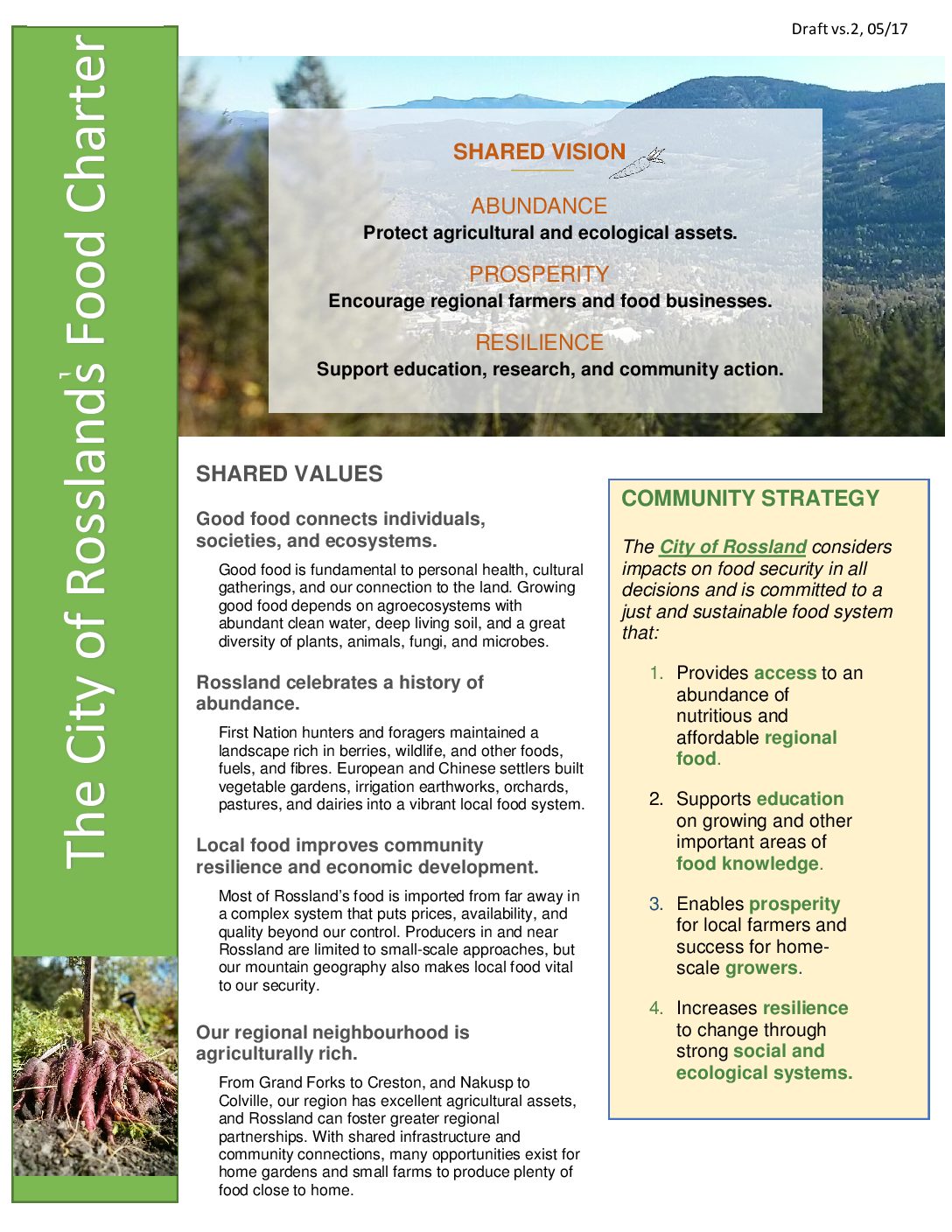Food Security
The community’s ability to provide reliable access to sufficient nutritious and affordable provided in ways that are ecologically, socially, and culturally acceptable, and resilient to change.
Good Food and Good Health
Good food is fundamental to personal health, cultural gatherings and our connection to the land. Growing good food depends on agroecosystems with abundant clean water, deep living soil, and a great diversity of plants, animals, fungi, and microbes.
Historically, Sinixt First Nation hunters and foragers maintained a landscape rich in berries, wildlife, and other foods, fuels, and fibers. European and Chinese settlers built vegetable gardens, irrigation earthworks, orchards, pastures, and dairies into a vibrant local food system.
Today the vast majority of Rossland’s food is imported from far away in a complex system that leaves prices, availability, and quality beyond our control. Producers in and near Rossland are limited to small-scale approaches, but our mountain geography also makes local food vital to our security. Our region—loosely from Grand Forks to Creston, and Nakusp to Colville—has excellent agricultural assets, and Rossland can foster greater regional partnerships. With shared infrastructure and community connections, many opportunities exist for backyard gardens and small farms to produce plenty of food close to home.
Consider the potential impacts on food security in all decisions
- Facilitate collaboration at all levels to advocate for policies that prioritize regional food.
Promote policies that protect our agroecological assets
- Manage our watershed so there is abundant water for ecosystems and agriculture.
- Manage food production and composting in ways that allow us to coexist with wildlife. o Promote the collection and dissemination of local agroecological knowledge.
- Encourage responsible harvests of wild food and fuel.
- Encourage the humane and ethical treatment of animals raised for food.
Encourage household and community-based food production
- Promote education on water capture, building healthy soil, and food storage. o Support research into locally adapted, regenerative food production.
- Support facilities to process, preserve, and store food.
Support local farmers and food businesses
- Support education on viable farming business plans and agricultural methods.
- Promote systems that connect local growers to local customers.
- Encourage research into new products and marketing channels.
